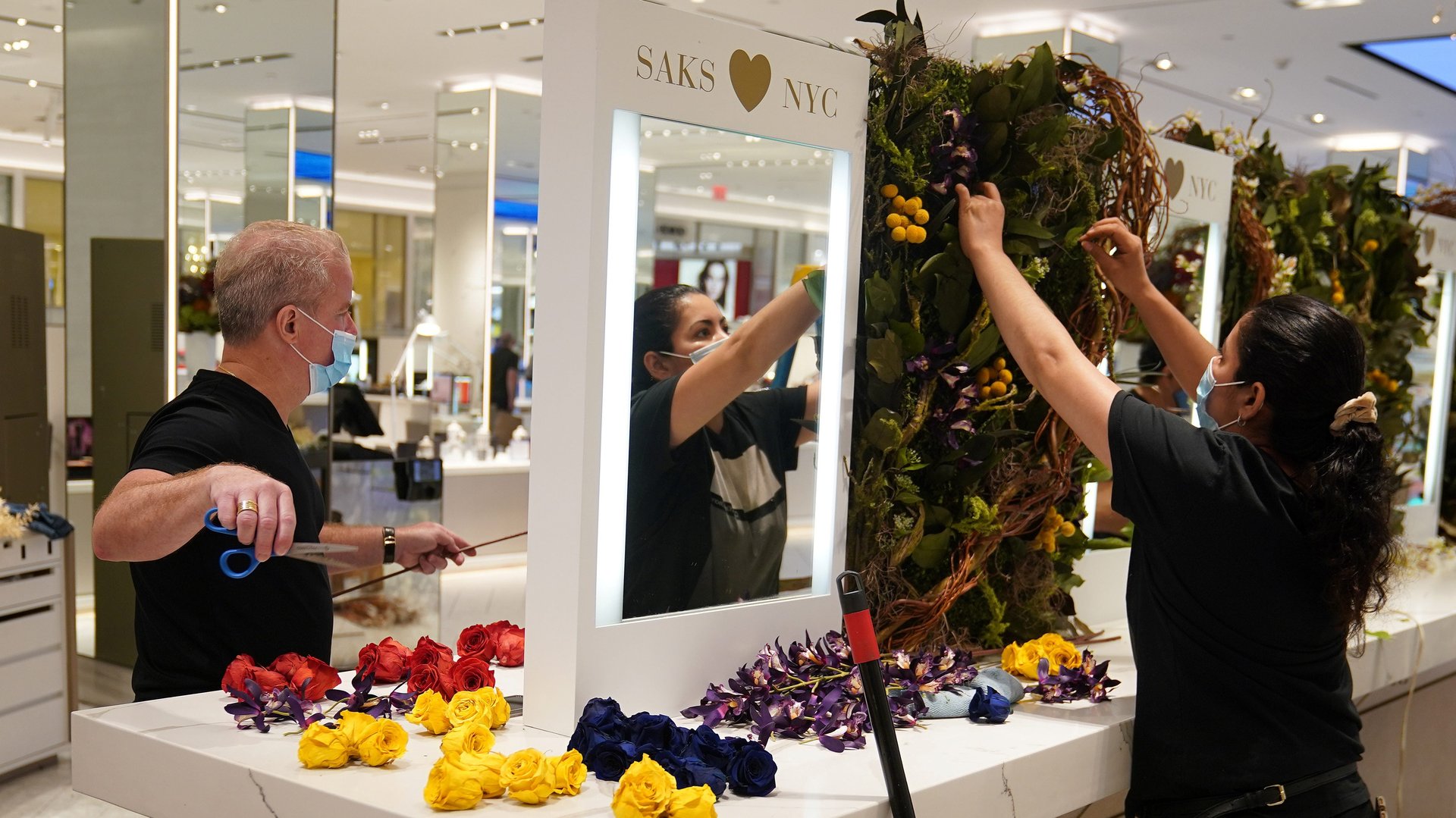US workers with the highest wage gains in 2021
2021 has been a year of pay gains for low-wage workers in the US.


2021 has been a year of pay gains for low-wage workers in the US.
Employees in the leisure and hospitality industry saw the biggest increases, with average hourly wages for hotels and restaurant workers 13.4% higher in November than the same month last year, according to the most recent Bureau of Labor Statistics data. Workers in transportation and warehousing saw a 10.4% increase, the next biggest gain.
The wage increases have been more concentrated among the lowest paid employees than higher-wage ones. From January to November, wages in personal services—which includes employees in restaurants, bars, spas, salons—rose from an average of $16 to $19 per hour, up 18%, according to data from Gusto, a payroll company. Meanwhile, wages in professional services—which includes workers in finance, accounting, legal, technology—increased 4%, from $24 to $25.
The gains in low-wage jobs have outpaced inflation, which is up 6.8% year-over-year. That said, higher inflation has eroded the wages of the average US worker.
Throughout the pandemic, a slew of low-wage employers, from Chipotle to Starbucks, announced unprecedented increases to their minimum pay. In March, Chipotle announced it would raise average hourly wages to $15 an hour while Starbucks announced a similar minimum. While the $15 federal minimum wage amendment may have failed to pass in the US Senate, employers raising wages to at least $15 an hour has become more of a norm. The average hourly earnings of non-managerial employees at restaurant and bars reached a high of $15.95 in October, the last month for which data are available. For grocery store workers, the average hourly earnings hit $15.30.
Amazon has been seen as setting the wage standard for other low-wage employers, putting pressure on surrounding companies to raise their pay. And, given the tight labor market, labor unions have taken advantage to demand more.
“What changed was just the labor market dynamics that for the longest time workers in these low wage positions hadn’t felt like they’ve been getting their due,” says Luke Pardue, an economist at Gusto. “Whether or not it’s by law or just by actual labor market dynamics, these wage gains are finally arriving for low-wage workers.”
Those working in the lower-wage sectors such as the restaurant industry have quit their jobs in record numbers, contributing to a record number of job openings. The job opening rate in leisure and hospitality is 10.3%, the highest among all industries, according to data from the US Bureau of Labor Statistics.
What’s next for low-wage workers
There are 11 million job openings in the US economy right now, suggesting a mismatch between the type of jobs that employees want and the jobs employers are offering. Some workers are switching to jobs with higher pay, while others are gaining new skills to enter new industries, which takes time, says Pardue. “We haven’t really seen this great rethink of the labor market in recent memory or possibly really even ever.”
The wage increases are likely going to continue, until the virus is under control. “The economy is linked deeply with the pandemic right now,” says Pardue. “It’s not something that’s going to happen overnight, but rather take a few months or even a year to kind of resolve itself.”